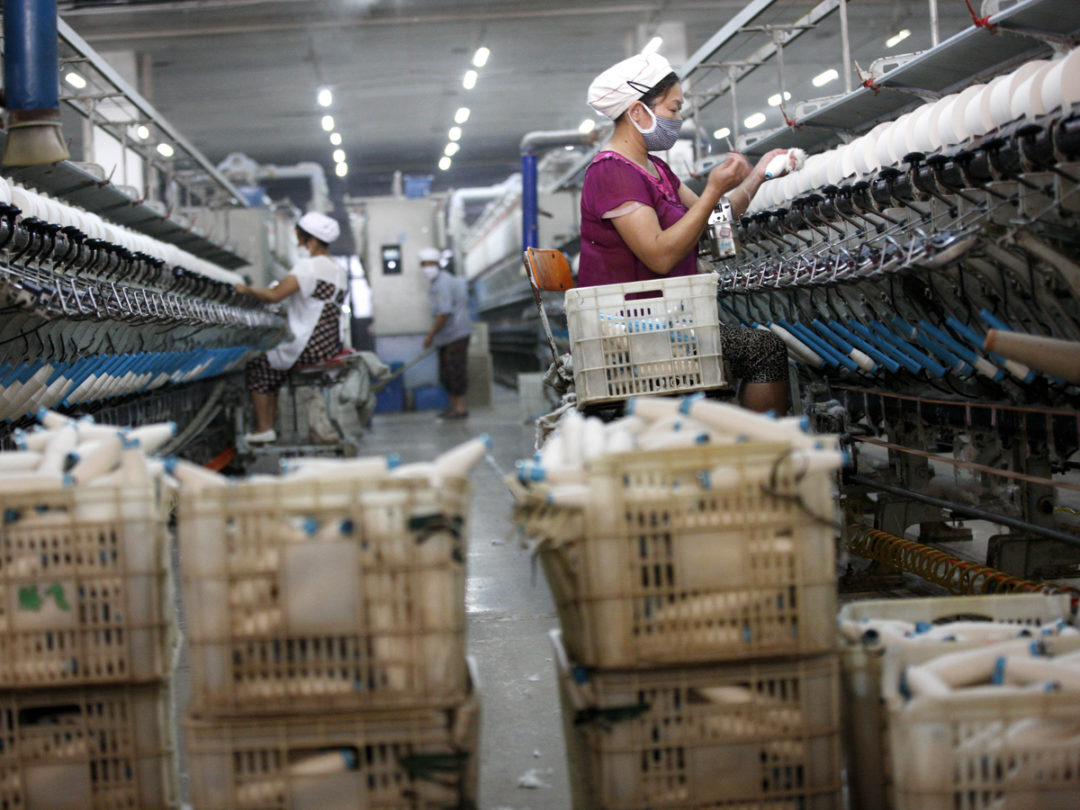
At the core of every discussion about corporate social responsibility lies the question: Does compliance pay?
One could further ask whether the question is even relevant. Shouldn’t responsible behavior be practiced because it’s the right thing to do? When it comes to critical issues like workers’ rights, why should profitability be a concern at all?
Businesses will reply that they can’t contribute to the well-being of workers and the environment unless they’re able to provide a steady return to their shareholders. But the case for compliance is stronger than that obvious reality. Increasingly, evidence is emerging that global businesses are reaping additional benefits by adhering to responsible practices within their supply chains.
The world hardly lacks for corporate social responsibility (CSR) initiatives. Virtually every major consumer brand has one, at least on paper. Companies trumpet their supplier codes of conduct, mandating that manufacturers pay a fair wage and provide a safe and comfortable environment for workers on the production line.
But the mere existence of a corporate code is no assurance that the proper steps are being taken to uphold it. Past accusations of worker mistreatment — and, in some cases, multiple deaths — have occurred at plants that were turning out product for some of the world’s highest-profile brands, whether they knew it or not. Complex global supply chains typically involve multiple tiers of manufacturers and raw-material suppliers, and the detection of unacceptable practices by subcontractors becomes progressively difficult as their distance from the original brand increases.
In his 2006 book The Market for Virtue: The Potential and Limits of Corporate Social Responsibility, University of California at Berkeley Professor David Vogel offers a mixed answer to the question of whether CSR pays. There is indeed a “market for virtue,” he writes, but it’s limited by considerations of cost and profitability. Increased government regulation is needed to make up for a shortfall in reflexively “good” corporate behavior. An even more negative take on Vogel’s book might be that treating workers poorly provides some manufacturers with a competitive advantage.
Indeed, statistics appear to show that the countries attracting the highest amount of offshore manufacturing are those with the lowest respect for workers’ rights. When it comes to ranking countries in terms of freedom of association, for example, 75 percent of sourcing goes to those in the bottom quartile, said Greg Distelhorst, assistant professor at the University of Toronto’s Centre for Industrial Relations and Human Resources. And in the category of fundamental workers’ rights, the biggest winners are in the third quartile.
Still, there’s some evidence that the picture is beginning to change. Speaking at a recent conference on responsible supply chains at Stanford University’s Graduate School of Business, Distelhorst cited findings from a 2016 paper (revised in 2018) that he co-authored with Richard M. Locke, provost and professor of political science at Brown University. Reviewing more than 2,000 factories in 36 countries over four years, the authors found that those complying with “social standards” enjoyed a 4-percent average increase in annual purchasing. Put another way, compliant factories saw a $1.5m increase in average annual order value since 2009.
One might question whether the findings demonstrate an actual causal link between adherence to CSR principles and increased orders. Distelhorst and Locke studied one factory that fell out of compliance yet gained no new business afterward, while another won additional contracts when it achieved compliance. “We saw the same pattern across all the years of our study,” Distelhorst said.
So compliance pays — but just how much is another matter. Distelhorst described that 4-percent average increase in annual order value as “not dramatic.” (Individual results ranged from 1.46 percent to 7.22 percent.) “Suppliers do have incentives for social responsibility,” he said, “but those incentives are weak.”
Distelhorst echoed the findings of Vogel’s book, in concluding that a combination of incentives and penalties, in the form of stricter regulation, are likely required to bolster CSR behavior. “Companies struggle with small rewards for improvement,” he said.
That hasn’t stopped them from pursuing responsible practices, however, especially when it comes to eliminating forced labor and human trafficking around the world. Sandy Tesh Wilkins, senior manager of investments with Humanity United, said corporations are beginning to pay attention to the problem, “but don’t have a lot of tools.”
Many efforts remain in the pilot stage. Working Capital, Humanity United’s fund for investing in innovative supply-chain technology, aims to create transparent and ethical supply chains. It’s focusing on five emerging investment categories: worker engagement, product traceability, ethical sourcing, risk assessment and ethical recruitment.
Still, says Wilkins, “technology is not the answer.” Real progress toward the creation of responsible supply chains depends on changing the attitudes of corporate executives. And they’re not likely to push hard for true progress without first satisfying the expectations of investors and shareholders.
Next: The fate of the global supply-chain worker.







